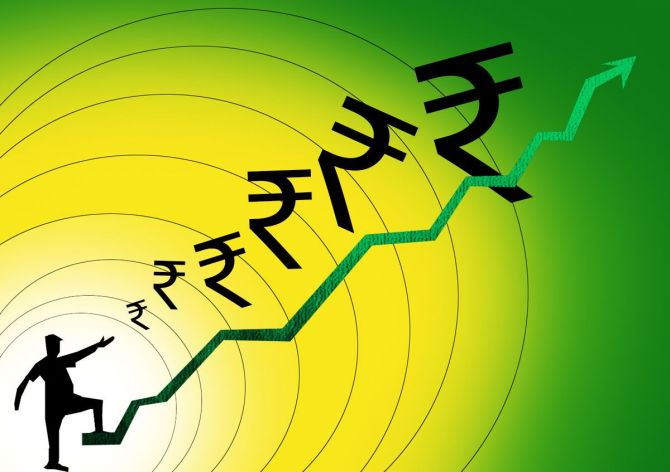Since March 2020, when the Nifty50 plummeted to 7,511 following the announcement of a nationwide lockdown, the stock market has been on an upward trajectory.

Over the next four years, the major market index has delivered a remarkable compounded annual growth rate (CAGR) of over 31.5 per cent.
In the past year alone, the Nifty50 has gained by 27 per cent, hitting a succession of record highs.
During this period, the benchmark largecap index has been outperformed by indices tracking smaller stocks.
Over the past year, the Nifty Midcap 50 index has risen by 60.7 per cent, the Nifty Smallcap 250 by 61 per cent, and the Nifty Microcap 250 by 85 per cent.
Among industry-specific indices, the Nifty Realty has surged 123 per cent, the Nifty PSU Bank is up 85 per cent, and the auto (Nifty Auto) and pharma (Nifty Pharma) sector indices have yielded returns of 63.6 per cent and 62.5 per cent, respectively.
Even “underperforming” sectors have fared well: the IT index has risen by 22.9 per cent, the FMCG gauge by 19.4 per cent, the Bank Nifty by 15.7 per cent, and the Nifty Private Bank by 13.4 per cent.
All the usual indicators are positive. Every major industry index is up, the ratio of advances to declines is robust, trading volumes are healthy, and the primary market is bustling.
Institutional sentiment is strong, with both domestic institutions and foreign portfolio investors (FPIs) displaying a net positive attitude.
FPIs have purchased a net Rs 1.85 trillion of equity in FY24 (until March 7), while domestic institutions have injected over Rs 1.5 trillion.
This includes steady, substantial inflows from retail investors into mutual funds.
The price-to-earnings (PE) valuation for the Nifty50 stands at 23x, which is high but not excessive. Smaller stock indices are in the PE 28x range, which is sufficiently overheated to have prompted a warning from the Securities and Exchange Board of India (Sebi) to the Association of Mutual Funds in India (Amfi), labelling midcap and smallcap valuations as “frothy”.
So, what’s the technical prognosis? It’s a market uptrend, and one of the cardinal rules of trading is to assume that a trend will persist until it is conclusively broken. In the short term, the Nifty50 index is consolidating in the 22,000-22,500 range.
Although it has reached record highs on an intraday basis, the index has not been able to sustainably move beyond 22,500.
Any move beyond 22,600 would set up a short-term target of over 23,000, while a drop where the Nifty50 closes below 21,900 could lead to a decline until 21,500.
These are very narrow ranges – less than plus/minus 3 per cent.
The market index is also about 11 per cent above its own 200-day moving average – if it falls to below 20,000, the long-term trend might be reversing.
In macroeconomic terms, there’s no apparent downside. GDP growth is robust.
The Reserve Bank of India (RBI) has kept interest rates steady and seems unlikely to raise rates.
Corporate results and guidance are optimistic. Sentiment is also very optimistic.
It could be dampened by lower-than-expected revenue and profit growth, but it is unlikely to be shattered purely by fundamentals.
In terms of known unknowns that could shift sentiment, there are a few triggers.
One is the general elections.
The market has assumed the re-election of a BJP-led government, with a stable or enlarged majority.
As such, if that expectation is fulfilled, probably the bull market will continue.
If it doesn’t happen, even if the BJP remains the largest party, there could be a crash if it does not retain a majority.
Black Swans (unknown unknowns) are, by definition, more difficult to pin down or estimate in terms of possible impact.
There could be some escalation of conflicts in West Asia and Ukraine, which impact supplies of crude, gas, and other commodities.
There could be another pandemic.
In addition, there could be conflict escalation on India’s borders, or domestic terrorist incidents, or assassination attempts, or communal trouble that disrupts normal life.
Given the impending elections, the impact of such incidents could be more severe than normal.
In the absence of black swans, or an unexpected election outcome, the market may continue consolidation, or head up.
A 12 per cent decline would be needed to suggest a trend reversal to a long-term bear market.










